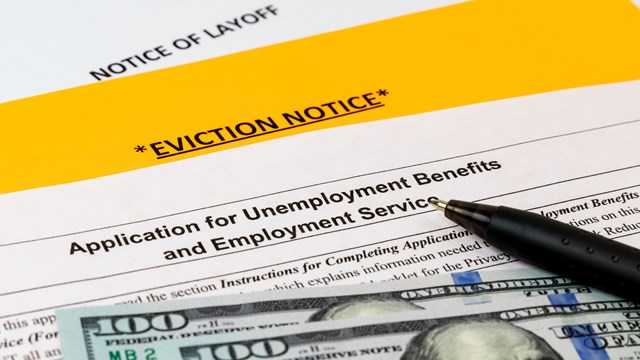
Over two decades ago, an amendment to the New York City Civil Court Act transferred enforcement proceedings connected with housing to the Civil Court. This amendment established what we now know as housing court, where residential landlord and tenant disputes could be resolved. Since a co-op shareholder is, in effect, a tenant of the apartment corporation and executes a proprietary lease (in which the rights and responsibilities of both the corporation and the shareholder are set forth), use of the housing court is available to the co-op in the event of a breach of a shareholder’s obligation. At the present time, each New York City borough has its own housing court. Despite some of the problems with delays and shortage of available courtrooms, co-op issues continue to be resolved in housing court alongside landlord-tenant disputes.
The two most common types of landlord and tenant proceedings heard in the housing court are non-payment proceedings and holdover proceedings. Non-payment proceedings are those where a landlord (or a co-op corporation) brings an action for the non-payment of rent (or in the case of a co-op, maintenance). Holdover proceedings, on the other hand, are actions brought by the landlord or co-op against a tenant or shareholder alleging, among other things, that the shareholder has breached a substantial obligation of his or her proprietary lease, such as harboring a pet, subletting, or having an appliance without the permission or consent of the board of directors. Holdover proceedings also involve actions brought based upon the tenant or shareholder causing a nuisance such as odors, noise, etc.
Collecting Payment and Curing Defaults
Commencement of a non-payment action for the failure to pay maintenance and other charges, begins with the co-op’s attorney serving a predicate notice. The notice advises the shareholder that they are in default under their proprietary lease. The shareholder is granted a specific period of time within which to cure the default for non-payment, otherwise an eviction proceeding will be brought.
Many co-ops include late charges and other fees as money owed by the defaulting shareholder. Care must be given, however, to ensure that the proprietary lease authorizes those particular charges, otherwise the co-op opens itself up to counter-claims by the shareholder and for his or her legal fees, if the shareholder is successful. The most common abuse by co-ops is the inclusion of cumulative late charges, such as $25 the first month, $50 the second month, $75 the third month and so on. This type of late charge structure violates not only most proprietary leases (which provide that late fees can only be charged equal to the maximum legal rate of interest), but also violates usury laws. Since the purpose of the rent demand, or "Notice to Cure," is to afford the shareholder the opportunity to determine the claim’s accuracy, only those charges which are legal and permissible should be included in the notice.
It is also important that the notice be signed not by the co-op’s attorney, but by an officer of the corporation. There are a number of cases which indicated that a notice signed merely by the attorney was in violation of the Federal Debt Collection Act. Under this statute, the tenant and/or shareholder is entitled to a different kind of notice over a protracted period of time. Court decisions originally indicated that the notices signed by the attorney would void any landlord/tenant proceeding. The most recent cases, however, indicate that they would not, but that the co-op and/or attorney might be liable for damages. Thus, it would be wise for the co-op to have an officer sign the notices.
When bringing a holdover proceeding for a breach of the proprietary lease for subletting, harboring a pet, or installing an appliance without the consent of the board of directors, a notice must be sent pursuant to the "Notice" requirements of the proprietary lease, giving the shareholder a number of days, generally ten to 30, to cure the breach. With regard to non-payment, the notice requirement is three days. In the event that the tenant does not cure the default in the non-payment of maintenance, then an eviction proceeding can be immediately commenced. With regard to holdover proceedings, if the matter is not cured within the requisite period of time, a second notice is sent advising the shareholder their proprietary lease is now terminated and that after a period of time, an eviction proceeding will be brought for possession of the apartment.
The next step in the landlord/tenant process is the preparation of a "Notice of Petition" (which is much like a summons) and a Petition (which is like a complaint). The Notice of Petition sets forth the names of the parties who are involved in the litigation and when and where the shareholder must respond. The Petition, on the other hand, sets forth the allegations of the co-op as to why they are entitled to the relief sought.
Observe Proper Procedures
Since summary proceedings are a creature of statute, strict compliance with the regulatory scheme must be followed. Often, what appear to be technical irregularities cause the dismissal of a case. Courts are becoming more reasonable with regard to these issues, but tenacious tenants and their attorneys can delay and frustrate a co-op if there is any sloppiness in the papers. Therefore, it is imperative that the party bringing the action on behalf of the co-op have a certified deed for the property, all the requisite information with regard to the managing agent and the multiple dwelling registration number, and, of course, an accurate copy of the shareholder’s proprietary lease. With this information in hand, the attorney should be able to properly draft the appropriate documents necessary to commence the action.
The co-op must remember if there was financing for the purchase of the apartment, there should be a "Recognition Agreement" on file where it is the co-op’s obligation to notify the shareholder’s lender of any default in the shareholder’s obligations to the co-op.
After the action is commenced, the shareholder then has a period of time within which to answer (put in a defense). If a shareholder does not answer within five days after service of a non-payment proceeding, the co-op would be entitled to obtain a default judgment and obtain an "Order of Eviction" from the courts through the City Marshal, giving the co-op possession of the apartment.
If the shareholder does not answer in a holdover proceeding, there is no automatic default, but the co-op would have to take an inquest, that is, prove to the judge its right to the relief sought, which is, once again, possession of the apartment. If the shareholder answers within five days in a non-payment, or on the return date in a holdover proceeding, a trial will be required.
Streamlining the Process?
About two-and-a-half years ago, the Administrative Judge of the City of New York, under the auspices of the Chief Judge of the State of New York Judith Kay, issued new housing court directives in an attempt to streamline and facilitate the landlord-tenant process. The structure was realigned, so that once a case was filed, it would be immediately assigned to one of a number of judges called "Resolution Judges." Their purpose would be to meet with the litigants on the return date of the case to try to settle the matter. If it couldn’t be settled, the case would be immediately sent out for a trial to judges whose sole responsibility is to try cases. The purpose of the new directives was to expedite and streamline the system, which in many ways has occurred.
At the time of the realignment of the court, it was publicly announced that a new co-op and condo division would be established as part of the housing court to hear co-op and condo cases, since they were of a special nature. Nonetheless, the establishment of a co-op-/condo division does not exist the way it was intended.
Indeed, co-op and condo cases are of a special nature–some of them do not even belong in the housing court. Condos cannot bring lawsuits in the housing court when unit owners fail to pay common charges or breach the bylaws since there is no landlord-tenant relationship between the condo and unit owner. While there is such a relationship in a co-op through the proprietary lease, it is unclear whether it is even appropriate, or wise, to bring actions on behalf of co-ops in the housing court.
The housing court is geared up for individuals to act as their own attorneys which often makes cases more difficult to settle. If a co-op were to bring an action in the Supreme Court alleging a breach in the proprietary lease and seeking injunctive relief (such as enjoining the shareholder from having a pet, an appliance, or subletting), it becomes very difficult for the shareholder to defend him or herself in that forum, causing the shareholder to expend great deals of money for attorneys to defend them.
Closely related to this issue is the question of whether the co-op is actually granted title to an apartment if a holdover proceeding is successful in the housing court and the co-op obtains possession of the apartment. Some attorneys think the answer to be no: The co-op would still have to bring a separate proceeding in the Supreme Court to obtain title and/or the right to sell the apartment. It would probably be better for the co-op to go directly to the Supreme Court and obtain all the relief required in one proceeding.
Housing court is probably the most overworked part of the entire New York State Court system. Housing court judges and their support personnel are some of the most dedicated individuals in the system. Despite some of the problems with delays and shortage of available courtrooms, the housing court is still a forum where justice can be obtained for all of the parties.
Mr. Brett is the founder of the Law Offices of Errol Brett in Manhattan.






66 Comments
Leave a Comment